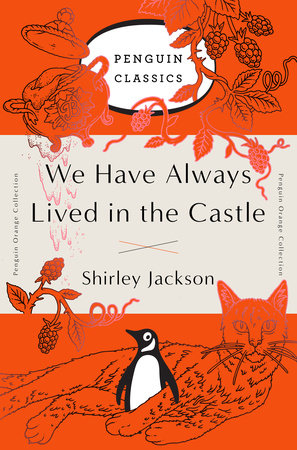
Read for free on the Internet Archive here!
(And at the Open Library here.)
My personal favourite Shirley Jackson book, We Have Always Lived in the Castle creates a disturbing glimse into the mind of Mary Katherine, and her life with her sister Constance. Mary Katherine acts as an unreliable narrator, you are aware that something has happened, and yet the heart of the mystery isn't fully explained, and something in Constance's fear and Merricat's posessiveness suggests that there is something strange in Constance being accused of murder, and the hate the entire town seems to have for the Blackwoods.
Overall I think that the tension and atmosphere created in the book is some of Shirley Jackson's best work. Merricat's knowledge of poisonous mushrooms, and the oleander trees described in Shirley Jackson's The Haunting of Hill House were also part of the inspiration for this website and my own interest in deadly plants.
The opening chapter itself sets the tone of the entire book, introducing Mary Katherine (nicknamed 'Merricat') as the narrator. The first sentence and chapter are important to any book, but I think that this first chapter is just an incredible opening, establishing Merricat as a unique narrator, someone who is more prone to witchcraft than logic. The child-like "I dislike washing myself" is set alongside a like for a deadly fungus, and the completely frank and unnerving "Everyone else in my family is dead.", said with seemingly very little emotion, sets the rest of the mystery up at the start. She gives nothing away and the reader is left with many questions.
The startling honesty and dark interests, mixed with a child-like tone and a petulance that extends from the petulant tone of the title (We Have Always Lived in the Castle suggesting a more determined "and we always will") presents Mary Katherine immediately as an interesting and unnerving protagonist.
A more in depth look at the first chapter can be found in this article.
"My name is Mary Katherine Blackwood. I am eighteen years old, and I live with my sister Constance. I have often thought that with any luck at all I could have been born a werewolf, because the two middle fingers on both my hands are the same length, but I have had to be content with what I had. I dislike washing myself, and dogs, and noise. I like my sister Constance, and Richard Plantagenet, and Amanita phalloides, the death-cup mushroom. Everyone else in my family is dead."
- We Have Always Lived in the Castle by Shirley Jackson, opening chapter
We Have Always Lived in the Castle was published in 1962, just three years before Jackson's death in 1965, and was written while she was very ill, suffering from severe anxiety, agoraphobia and many health conditions due to heavy smoking and prescription drug abuse. The influence of her life and circumstances on the overall tone and plot of the book is something that I think is very interesting. Merricat's feelings of being ostracised from the rest of the town, Constance's fear of leaving the garden, and the ultimately happy ending and glorification of a separation from the rest of society is something that could have reflected Shirley Jackson's own state of mind, and I think that is what makes the book so unnerving and compelling.
Shirley Jackson's ability to turn the domestic into something both beautiful and horrifying establishes the book as a love letter to food, family, and the safety of routine. Merricat's actions, fears, possessiveness, and desperation to maintain their perfection and safety is shown to amount to no negative consequence, and in this sense Jackson's final story acts as a sort of fairy tale: the evil townspeople repent, the sisters have plentiful food and are safe to never have to leave their 'castle' again.
'Oh, Constance,' I said, 'we are so happy.'